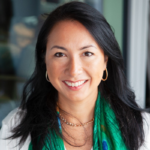Improve your company’s employee engagement and retention by making benefits inclusive and available to employees at all levels.
In your multinational company, are employees living in different regions and working at different levels offered the same benefits package? In many cases, the answer is no. In modern workplaces with diverse workforces, it’s all too common to witness disparities in the benefits offered to frontline or junior employees compared to colleagues in higher positions, or to see certain benefits only accessed or used by some employees.
At the recent Catalyst webinar “Equalising Benefits to Drive Employee Engagement,” top diversity, equity, and inclusion (DEI) leaders in EMEA shared their expertise on how to foster inclusion and equity in workplace benefits at every level and across regions. When employees feel valued and supported, they are more likely to be engaged and want to stay.




Left to right: Tomi Isaacs, Satu Heschung, Vanessa Otake, Doriana De Benedictis
Moderated by Tomi Isaacs, Senior Director, Catalyst, attendees heard what multinational companies in EMEA are doing from Satu Heschung VP, Global Diversity, Equity & Inclusion, Sodexo; Vanessa Otake, Global Equity, Diversity & Inclusion Leader, Unilever; and Doriana De Benedictis, Europe West and Emeia Diversity, Equity & Inclusion Leader, EY.
Here is what we learned:
Be flexible and embrace change rather than a one-size-fits-all model.
In Brazil, said Vanessa Otake of Unilever, winner of the 2020 Catalyst Award, Unilever employees are given the flexibility to choose the benefits that are best suited for them as individuals and for their lived experiences, like healthcare and childcare support, among others. This flexibility is helpful in particular for dual-income families, enabling partners to choose complementary benefits and avoid duplication.
Added Doriana De Benedictis of EY, winner of the 2003 Catalyst Award, EY employees in Italy had been offered an economic bonus for new mothers. “Employees asked, ‘But what about the fathers?’ So, we changed the maternal bonus to a parental bonus and included same-sex couples and foster parents.”
Listen to your employees and pay attention to your ERGs—during challenging moments and beyond.
The idea for offering a choice of benefits came from employee resource groups (ERGs), said Otake. “It’s very important to listen to the employees. This makes them feel they are taken care of, which helps with retention and engagement.”
Likewise, said Satu Heschung of Sodexo, “We need to take care of our people especially in challenging times and during different life stages, and we learn so much from our ERGs.” (To learn how to start an ERG or leverage the ones you have at your company, sign up to participate in enERGize, Catalyst’s half-day virtual event on 5 June 2024.)
During and after Covid, “a lot of people at EY, especially [our] young population asked for psychological support or counseling,” added Doriana De Benedictis, “so we introduced it in most of our countries. It’s important to take note of the historical moment and geopolitical changes you’re living in.” Small- and medium-sized enterprises that don’t have ERGs, she noted, should conduct small focus groups to stay informed on how employees feel, what they need, and what they think.
Make your benefits globally equitable while being mindful of local regulations.
“We would like to establish minimum equitable standards for all employees, regardless of country,” said Doriana De Benedictis, “but at the same time, we need to take care of local regulations, cost of living, and disparities across countries. So, at the moment, we have different levels of benefits depending on where employees live, and we are open to update benefits to be equitable and competitive.”
Sodexo’s Vita program sets minimum standards and offers three essential benefits across 45 countries, said Heschung: parental and family care leave; life insurance; and 24/7 phone assistance for practical advice on a range of issues, including gender-based violence. This program offers flexibility aligned with cultural context and local regulations, and it is offered to everyone, including frontline employees.
Embrace innovative thinking to meet your employees where they are.
Otake shared with Catalyst that Unilever is introducing a novel employment model, U-Work, which blends the flexibility of contract work with the stability and benefits of permanent roles.
“Participants in U-Work,” Otake told Catalyst, “engage in varied assignments without fixed roles, enjoying a monthly retainer and continuous benefits. This model supports diverse needs, such as phased retirement, parenting, or pursuing personal interests, by offering adaptable work patterns. U-Work benefits Unilever by providing a ready pool of skilled workers familiar with the company, reducing the costs and time involved in hiring freelancers. Launched in various countries, such as UK, South Africa, and Malaysia, U-Work showcases Unilever’s innovative approach to modern employment needs.”
Offer benefits that strengthen equity from underrepresented or marginalized communities.
Doriana De Benedictis highlighted that, among other benefits available to everyone such as employee assistance programs and parental benefits, EY offers benefits to persons with disabilities including accessibility travel desks and reasonable adjustments. EY also offers financial literacy and investment advice as well as access to savings and investment opportunities. “This is important,” says Doriana De Benedictis, “because people from marginalized communities, more often than not, are at the low end of the wealth gap and seldom enjoy generational wealth created through real estate ownership and general investing.”
For more takeaways, watch the webinar recording.
To unlock the keys to inclusive workplaces, sign up for our learning opportunities.